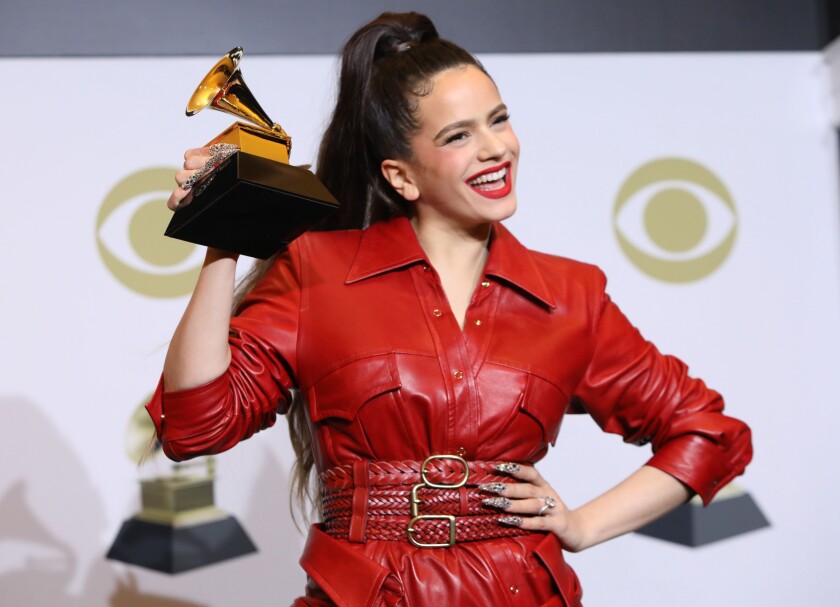After hanging the sold-out sign at his concerts in the United States, Argentina, Mexico and Spain, the Motomami World Tour from
rosalia
it closed on September 18 in Paris. It was the end of a round year, which crowned her as the best reviewed artist of the season according to international specialized critics, which she signed the best album of 2022 and the one that produced a performance in which even her hair and tears were left.
“Being a popstar never lasts, but I will always carry this tour in my heart,” she summed up on her social networks, that space that, like the stage, is also her world. This is the chronology of a phenomenon as naive as it is sensual and captivated.
Although she continues to be her greatest inspiration, Rosalía is not limited to flamenco. With no gypsy origins, she discovered this genre during her childhood in her native Catalonia, through Andalusian friends. The crush was instant. In 2017, his first album The Angels, in which she sings alone accompanied by a guitar, integrated her into this traditional genre. It was a critical success, but it did not give him the international recognition that was to come a year later, with the evil will and his 25 years.
The album, which won the Album of the Year award at the Latin Grammys and took home three other awards that year, reflects Rosalía’s Spanish and flamenco imagery, accompanied by more pop and danceable tones.
Divided into 11 songs, this conceptual work that began as the singer’s graduation project recounts the stages of a toxic love relationship, inspired by the anonymous medieval work Flemish. As the chapters go by, the protagonist progresses towards emancipation.
From there, Rosalía seemed to dare everything. She did duets with Ozuna, The Weeknd, Bad Bunny or Travis Scott, Billie Eilish and Tokischa, but one of the ones that stood out the most was generated with the Colombian J. Balvin. “with height” came out in 2019 and has more than 2 billion views on YouTube. It was one of his first reggaeton songs, just a warning of what was to come.
“I feel that in motomami I did and said exactly what I wanted to say and do, in my own way. After this there is no going back, ”he declared in a recent American edition of Rolling Stone magazine.
Posted in March 2022, motomami it was acclaimed by critics and the public. The butterfly became the symbol of this stage, a symbol of transformation, as Rosalía herself sings in “Saoko”: “I am very mine, I am transformed / A butterfly, I am transformed”.
Pop, reggaetón —a lot of reggaetón—, hip hop, electro, jazz, impossible fusions, a meticulous production: the album covers all genres and offers intimate content. There’s explicit sexuality, feminism, spirituality, self-love, vulnerability, and the dark side of fame.
Rosalía is sound and songs, but she is also an extremely careful aesthetic linked to Spain, present in her clips, record covers and in her concerts. There are nods to the cinema of bigas moon either
Pedro Almodovar
and the essence of a homeland that he brought to the stage in the form of bullfighting, religion and much of the telluric, the Lorca.
All this was passed through the filter of the networks and TikTok: his proposal for a live show drinks directly from that plane and correctly incorporates the codes of generation Z. His tour was conceptually revolutionary.
Furthermore, although he lost one-on-one with the Uruguayan
Jorge Drexler at the last Latin Grammys
, this year he won the award for best album again, with “D” for dynamite, “H” for hondura and “T” for titanic. The “Rosi season coming” that he predicted in “La Combi Versace” was a resounding success.
With information from AFP, EFE
The year of Rosalía, or when the revolution is made of reggaeton, TikTok and “motomami” energy

